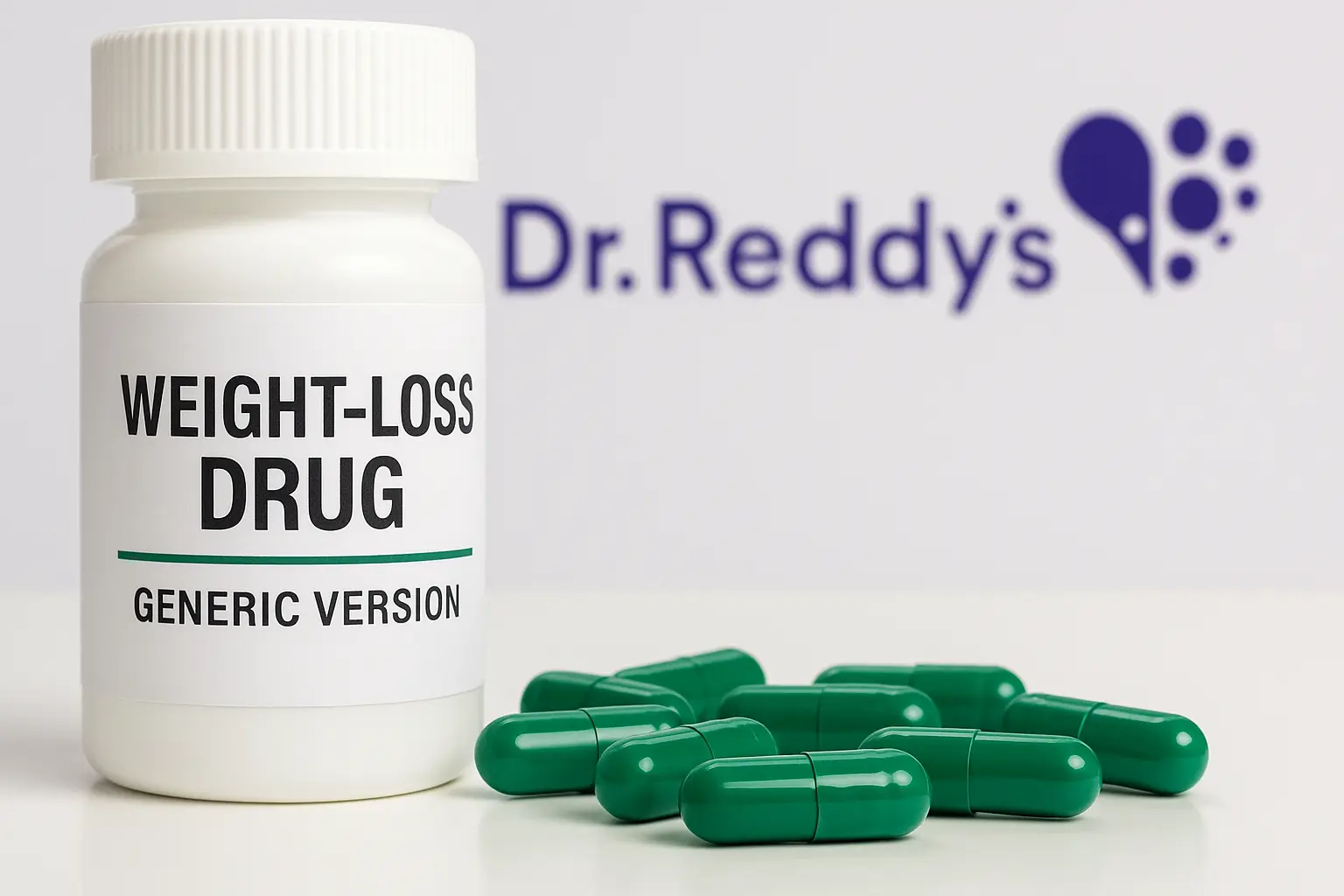An Indian pharma company is gearing up to produce affordable generic versions of blockbuster weight-loss drugs like Wegovy and Zepbound. Discover how this move could reshape the U.S. healthcare market and make life-saving treatments accessible to millions.
🚀 The Global Obesity Epidemic Is Fueling a Pharma Gold Rush
Obesity has become a global crisis—and with it, the market for weight-loss medications is booming. From Novo Nordisk’s blockbuster drug Wegovy to Eli Lilly’s powerful Zepbound, demand for GLP-1-based treatments is skyrocketing. But here’s what’s making waves now: an Indian pharmaceutical company is positioning itself as a key player in the race to offer generic alternatives to these wildly expensive weight-loss drugs.
With American consumers increasingly seeking more affordable healthcare, this could be a massive breakthrough—not just for the Indian company, but for millions of people in the U.S. struggling with weight issues and soaring prescription costs.
🧪 Who’s the Indian Pharma Giant Making Bold Moves?
The company making headlines is Dr. Reddy’s Laboratories, a Hyderabad-based pharmaceutical titan known for its deep expertise in generics. The company recently confirmed its plans to manufacture and eventually export generic versions of GLP-1 agonist drugs, a class that includes semaglutide (Wegovy/Ozempic) and tirzepatide (Zepbound/Mounjaro).
As regulatory exclusivity begins to wind down in the coming years, Dr. Reddy’s is gearing up with investments in R&D, licensing deals, and clinical trials. Their goal? To bring safe, effective, and most importantly, affordable weight-loss treatments to global markets—especially the United States.
💊 The GLP-1 Drug Revolution: Why Everyone’s Talking About It
GLP-1 receptor agonists are not just another weight-loss trend. These medications work by mimicking a gut hormone that suppresses appetite and improves insulin sensitivity. For many people, they offer results that traditional diet and exercise just can’t deliver.
Recent clinical studies show:
- Average weight loss of 15% to 20% of body weight over a year
- Reduction in cardiovascular risk factors
- Improved blood sugar control in Type 2 diabetics
But here’s the catch: Wegovy and Zepbound come with hefty price tags, often costing over $1,000 per month without insurance. This is where generic versions could change the game.
💡 Why Generics Are So Critical for the U.S. Market
In the U.S., healthcare affordability remains one of the top concerns. A recent KFF Health Tracking Poll found that 77% of Americans say prescription drug prices are “unreasonable.” While GLP-1 drugs are incredibly effective, they’re also out of reach for many due to cost.
Generics could offer:
- 70% to 85% price reductions
- Broader insurance coverage
- Access for millions of uninsured or underinsured Americans
That’s why Dr. Reddy’s move into this space isn’t just smart—it’s necessary. As patents on semaglutide and tirzepatide begin to expire in the coming years, FDA-approved generics from India could flood the U.S. market, creating a multi-billion-dollar opportunity.

🌍 Global Demand + U.S. Obesity = A Perfect Storm for Pharma
Let’s break down the numbers:
- Over 40% of American adults are considered obese
- The global anti-obesity drug market is expected to hit $100 billion by 2030
- The U.S. alone could account for nearly half of this revenue
Given this outlook, Dr. Reddy’s strategy aligns perfectly with long-term demand. They’re not alone either—Sun Pharma, Cipla, and Biocon are also reportedly exploring similar opportunities. But Dr. Reddy’s has a strong record of bringing generics to global markets swiftly and cost-effectively, which may give it a first-mover advantage.
📈 How Indian Pharma Could Disrupt the U.S. Drug Market
Indian pharmaceutical companies have long been the backbone of the world’s generic drug supply, providing 20% of all generics consumed globally. In the U.S., more than 1 in every 3 prescriptions is filled with an Indian-made generic.
If Dr. Reddy’s succeeds in getting a GLP-1 generic approved by the U.S. FDA, it could:
- Force major price reductions from big pharma players
- Trigger a massive adoption wave in retail pharmacy chains like CVS and Walgreens
- Enable telehealth startups and clinics to offer affordable weight-loss programs
🧠 The Regulatory Roadblocks Ahead
Of course, it’s not all smooth sailing. Manufacturing biosimilar or generic versions of complex biologic drugs like GLP-1s involves stringent regulatory hurdles. The FDA requires extensive safety trials, bioequivalence studies, and often, years of documentation.
But Dr. Reddy’s is no stranger to this process. They’ve already cleared FDA hurdles for numerous complex generics, including injectable cancer drugs and biosimilars. With their deep bench of regulatory experts, they’re already laying the groundwork.
🏦 Big Investment, Bigger Payoff?
Dr. Reddy’s is reportedly investing heavily in:
- State-of-the-art R&D labs
- Clinical partnerships in the U.S. and Europe
- Advanced biologics manufacturing facilities
They know the competition will be fierce—but they also know the potential returns are enormous. With cost-conscious American consumers on one side and skyrocketing obesity rates on the other, this may be one of the biggest generics opportunities in recent pharma history.
🇺🇸 What It Means for American Readers
For U.S. readers and consumers, here’s the bottom line:
- Cheaper weight-loss drugs are on the horizon
- Indian generics could bring GLP-1 therapy within reach for millions
- This could spark a healthcare affordability revolution in obesity management
- Early investors, pharmacy chains, and clinics offering access may stand to benefit
Whether you’re a patient, healthcare professional, or market watcher, this trend is worth tracking closely.
📌 Final Thoughts: The World Is Watching
As obesity rates climb and the demand for effective weight-loss drugs explodes, the pharma world is at a tipping point. Companies like Dr. Reddy’s are leading the way, proving that innovation and affordability can go hand in hand. If they succeed, it won’t just reshape the market—it could transform millions of lives across America and beyond.

Aslo check it
OpenAI CEO Sam Altman Warns of Impending AI ‘Fraud Crisis’ Amid Voice Cloning Threats
